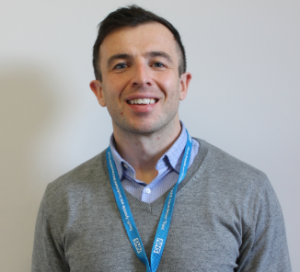Concerns have been raised over a future “tsunami of ill health” linked to “stark” obesity rates for both children and adults on Wearside.
The issue was brought into the spotlight at the latest meeting of Sunderland’s Health and Wellbeing Board earlier this month (2 October) during a discussion on wider citywide health statistics.
A presentation to the panel noted the high levels of Sunderland residents who were overweight or obese over the 2023/24 year.
This included almost 1 in 4 Sunderland children (23.9 per cent) in reception (aged 4-5 years) who were “living with overweight or obesity” and almost 1 in 2 Sunderland children (42.3 per cent) in Year 6 (aged 10-11 years) “living with overweight or obesity”.
During the same year (2023/24), it was noted that 32.8 per cent of adults in Sunderland were “living with obesity”, which is higher than the North East level (32.5 per cent) and “significantly higher” than England (26.5 per cent).
Data also showed that 71.8 per cent of adults in Sunderland were “living with either overweight or obesity during 2023/24”.
The adult “overweight or obesity” rate was noted to be an increase from 65.1 per cent in 2022/23 and higher than the North East rate (70.4 per cent), and “significantly higher” than England (64.5 per cent).
The presentation to health bosses noted that “obesity is complex, and we know what surrounds us shapes us” and that a “healthy weight strategy is currently under development to improve the approach to healthy weight in Sunderland.”
However, the figures sparked concerns and discussion from senior health officials working across Sunderland about both the health and service implications of large numbers of residents being overweight or obese.

Image: LinkedIn/Scott Watson
Scott Watson, from NHS North East and North Cumbria Integrated Care Board (ICB), said he was drawn to indicators around obesity and “how stark they are in terms of the numbers of our children who are overweight”.
“Around 25 per cent of five year olds and 50 per cent of 11 year olds, 72 per cent of adults, it’s a genuine tsunami of ill health that’s coming our way,” he said.
“We’ve just sat for the best part of two hours to talk about how we have sustainable services and we can meet need and you can see what’s coming over the coming years.
“I suppose it’s just a question for the board around what emphasis do we need to place on this in our plans and our transformation, thinking about things like neighbourhood health and all the rest of it.
“Is there more that we feel that we need to do about it or are we just nibbling around the edges of everything else.”
Gerry Taylor, executive director of health, housing and communities at Sunderland City Council, agreed there was “more to do” and noted that there was partnership work ongoing to improve the proportion of young people who have a “healthy weight”.
The senior council officer said to “make a difference to healthy weight in the city” there needed to be a “very comprehensive strategy and approach” looking at the wider factors, or “building blocks”, that influence health.
“We are working on that at the moment and it’s maybe something that we would normally see through delivery boards but the main Health and Wellbeing Board may want to see that given the importance of the stark issues that have been highlighted,” she added.
“On the impact on services, we have been looking probably more at what’s the evidence and what’s going to make a difference around healthy weight.
“Maybe we also need to think in our thinking a bit more about what the impact on the services might be and if we don’t achieve a step change what that’s going to look like going forward.”
The council chief added the “food environment doesn’t help us to ensure that we do have a healthy weight” and that there were wider environmental challenges which also had an impact.

Ryan Swiers deputy director of public health and wellbeing at Sunderland City Council
Image: South Tyneside and Sunderland NHS
Ryan Swiers, deputy director of public health and wellbeing at Sunderland City Council, noted the wider public health challenges of tobacco, alcohol, obesity and mental health on Wearside.
On the issue of obesity figures, he said it was “not possible to provide a service as a solution” and that while “pharmaceutical, bariatric and weight management services all have a role”, the “scale of the problem” means that health services can’t solve the issue alone.
The public health chief said the approach towards the issue would require a “collective” effort going forward and noted that previous work to encourage people to “take more ownership” of their health had not had the intended effect.
“This is not a new challenge, this tsunami has been on the horizon for decades and we have done lots of work but it hasn’t affected the curve,” he added.
“So whatever we do do, accepting that many things that might make a difference will be beyond the control of this board, I think it is a real challenge to think about what is the role of a Health and Wellbeing Board around a topic like obesity.
“We don’t necessarily have all of the levers at our disposal here but what is our role in helping others to pull the relevant levers?
“This is an important group and there is a massive issue and we can’t skirt around it and I think it’s something we need to keep coming back to.”
Dr Tracey Lucas, who chaired the Health and Wellbeing Board at City Hall on 2 October, 2025, noted the wider societal factors influencing healthy weight, from ultra-processed foods and exercise to advertising.
“It’s obviously not something that we have managed to crack for multiple complex reasons and there are multiple solutions probably to issues,” she said.

Image: LinkedIn/ Tracy Lucas
“I would not say it’s anybody’s fault, it’s absolutely not, the society we live in is geared
against us ever losing any weight ever, it’s advertising and big companies and everything, it’s really difficult.
“It’s also ensuring that in the neighbourhood agenda that children have an equal focus on it as well and that’s really difficult.
“There’s a childhood obesity project that’s going to start running in Hendon identifying those children that are really quite overweight and being a bit unwilling and to work with multi-agency to look at whether that can be improved.
“It’s a whole family approach, it’s in its early stages but it needs to be a whole family not just the child so people are doing pockets of work alongside the big projects as well.”
The obesity figures discussed at the meeting were linked to the Sunderland Joint Strategic Needs Assessment Summary 2025/2026.




